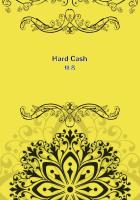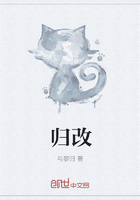The remedy lies solely in our case with us. We can make our life at West Point what we will. We shall be treated by the cadets as we treat them. Of course some of the cadets are low--they belong to the younger classes-- and good treatment cannot be expected of them at West Point nor away from there. The others, presumably gentlemen, will treat everybody else as becomes gentlemen, or at any rate as they themselves are treated. For, as Josh Billings quaintly tells us, "a gentleman kant hide hiz true karakter enny more than a loafer kan."Prejudice does not necessarily prevent a man's being courteous and gentlemanly in his relations with others.
If, then, they be prejudiced and treat one with ordinary civility, or even if they let one "severely alone," is there any harm done? Is such a course of conduct to be denounced? Religiously, yes; but in the manner of every -day life and its conventionalities, I say not by any means. I have the right--no one will deny it--of choosing or rejecting as companions whomsoever I will.
If my choice be based upon color, am I more wrong in adopting it than I should be in adopting any other reason? it may be an unchristian opinion or fancy that causes me to do it, but such opinion or fancy is my own, and I have a right to it. No one objects to prejudice as such, but to the treatment it is supposed to cause.
If one is disposed to ill-treat another, he'll do it, prejudiced or not prejudiced. Only low persons are so disposed, and happily so for West Point, and indeed for the whole country.
"The system of competitive examination for admission, so largely adopted within the past few years in many of our large cities, has resulted in recruiting the corps with lads of bright intellect and more than ordinary attainments, while the strict physical examination has rigorously excluded all but those of good form and perfect health. The competitive system has also given to the Academy students who want to learn, instead of lads who are content to scramble through the prescribed course as best they can, escaping being "found" (a cadet term equivalent to the old college word 'plucked') by merely a hair's-breadth."The old way of getting rid of the rough, uncouth characters was to "find" them. Few, very few of them, ever got into the army. Now they are excluded by the system of competitive examination even from entering the Military Academy, and if they should succeed in getting to West Point, they eventually fail, since men with no fixed purpose cannot graduate at West Point.
Now if the "colored cadets" be not of this class also, then their life at West Point will not be much harder than that of the others. The cadets may not associate, but what of that? Am I to blame a man who prefers not to associate with me? If that be the only charge against him, then my verdict is for acquittal. Though his conduct arises from, to us, false premises, it is to his sincere convictions right, and we would not in the slightest degree be justified in forcing him into our way of looking at it. In other words, the remedy does not lie with Congress.
The kind of treatment we are to receive at the hands of others depends entirely upon ourselves.
I think my life at West Point sufficiently proves the truth of this assertion. I entered the Academy at a time when, as one paper had it, West Point was a "hotbed of disloyalty and snobbery, a useless and expensive appendage." I expected all sorts of ill-treatment, and yet from the day I entered till the day I graduated I had not cause to utter so much as an angry word. I refused to obtrude myself upon the white cadets, and treated them all with uniform courtesy. I have been treated likewise. It simply depended on me what sort of treatment I should receive. I was careful to give no cause for bad treatment, and it was never put upon me. In ****** this assertion I purposely disregard the instances of malice, etc., mentioned elsewhere, for the reason that I do not believe they were due to any deep personal convictions of my inferiority or personal desire to impose upon me, but rather were due to the fear of being "cut" if they had acted otherwise.
Our relations have been such, as any one will readily observe, that even officially they would have been obliged to recognize me to a greater or less extent, or at the expense of their consciences ignore me. They have done both, as circumstances and not inclination have led them to do.
A rather unexpected incident occurred in the summer of '73, which will show perhaps how intense is that gravitating force--if I may so term it--which so completely changes the feelings of the plebes, and even cadets, who, when they reported, were not at all prejudiced on account of color.
It was rather late at night and extremely dark. Iwas on guard and on post at the time. Approaching the lower end of my post, No. 5, I heard my name called in a low tone by some one whom I did not recognize. I stopped and listened. The calling was repeated, and I drew near the place whence it came.
It proved to be a cadet, a classmate of mine, and then a sentinel on the adjacent post, No. 4. We stood and talked quite awhile, as there was no danger either of being seen by other cadets--an event which those who in any manner have recognized me have strenuously avoided--or "hived standing on post." It was too dark. He expressed great regret at my treatment, hoped it would be bettered, assured me that he would ever be a friend and treat me as a gentleman should.















